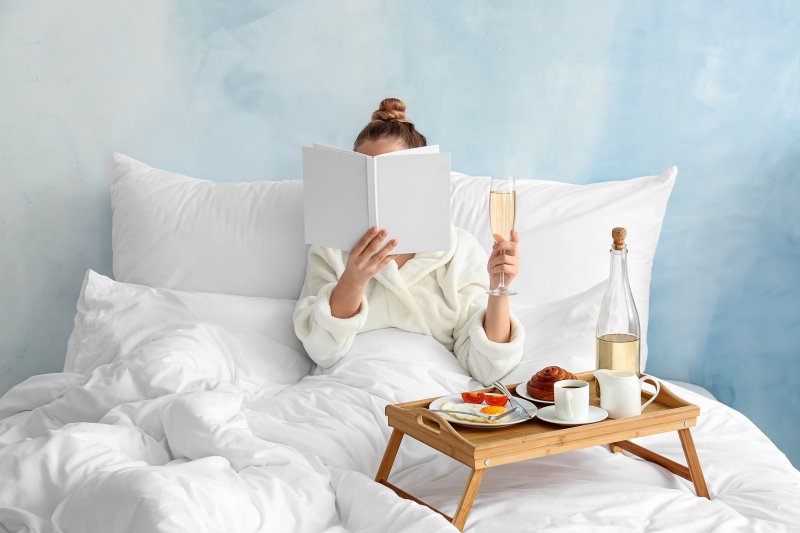
A nice, cold drink right before bed is just the thing you need to relax, right? Think again. Drinking alcohol in the evening has been known to lead to a number of sleep disorders, including sleep apnea. And if you’re already suffering from such a disorder, the alcohol makes it worse. It’s important to understand what causes sleep breathing and how drinking can contribute to it. In this post, you can explore the link between alcohol and sleep apnea.
What Causes Sleep Apnea?
You experience sleep apnea episodes when your air passage is narrowed or blocked to such a degree that breathing stops. This often occurs in overweight or obese people since they tend to have a higher amount of tissue around the airway that can potentially block it once it becomes relaxed. Other risk factors include age and anatomy (the disorder is more likely to affect people who are middle-aged or older as well as those with naturally narrow airways).
How Does Alcohol Contribute to Sleep Apnea?
Sleep induced by large amounts of alcohol consumption is generally of very low quality, due to causing you to skip important parts of the sleep cycle. Also, later in the night, your sleep will be more fragmented, and you may find yourself waking up more frequently.
If you already have sleep apnea, then the effects are even worse. For one thing, alcohol works as a muscle relaxant and puts the tissues at the back of the throat even more at ease than they were before. Because of this, mild or moderate sleep apnea can easily turn into severe sleep apnea. Furthermore, alcohol tends to increase the amount of time between the cessation of breathing and your body waking up for air, taking a serious toll on the body’s blood oxygen levels. You’ll likely wake up feeling dehydrated and sleep deprived, and that feeling will only grow worse if you stayed up particularly late the night before.
Should You Avoid Alcohol if You Have Sleep Apnea?
For the sake of your health and the quality of your rest, it’s best to stay away from alcoholic beverages altogether. That said, if you do continue to drink, you should at least make an effort to avoid alcohol for several hours before you go to bed. You should also talk to a sleep dentist about treatment options for sleep apnea.
It’s important to be aware of how the things you eat or drink are affecting your body. If you have any reason to think alcohol is affecting the way you sleep, you should change your habits accordingly and get in touch with a sleep expert right away.
About the Author
Dr. Conditt graduated from Baylor College of Dentistry in 1985. He noticed that patients who suffered from TMJ disorders also tended to have sleep apnea, and as a result he pursued advanced training in order to effectively treat both problems. Today, he is a member of the American Academy of Dental Sleep Medicine. If you think you might be suffering from sleep apnea or are worried about the impact alcohol might be having on your rest, set up an appointment with Dr. Conditt by visiting his website or calling (817) 527-8500.
